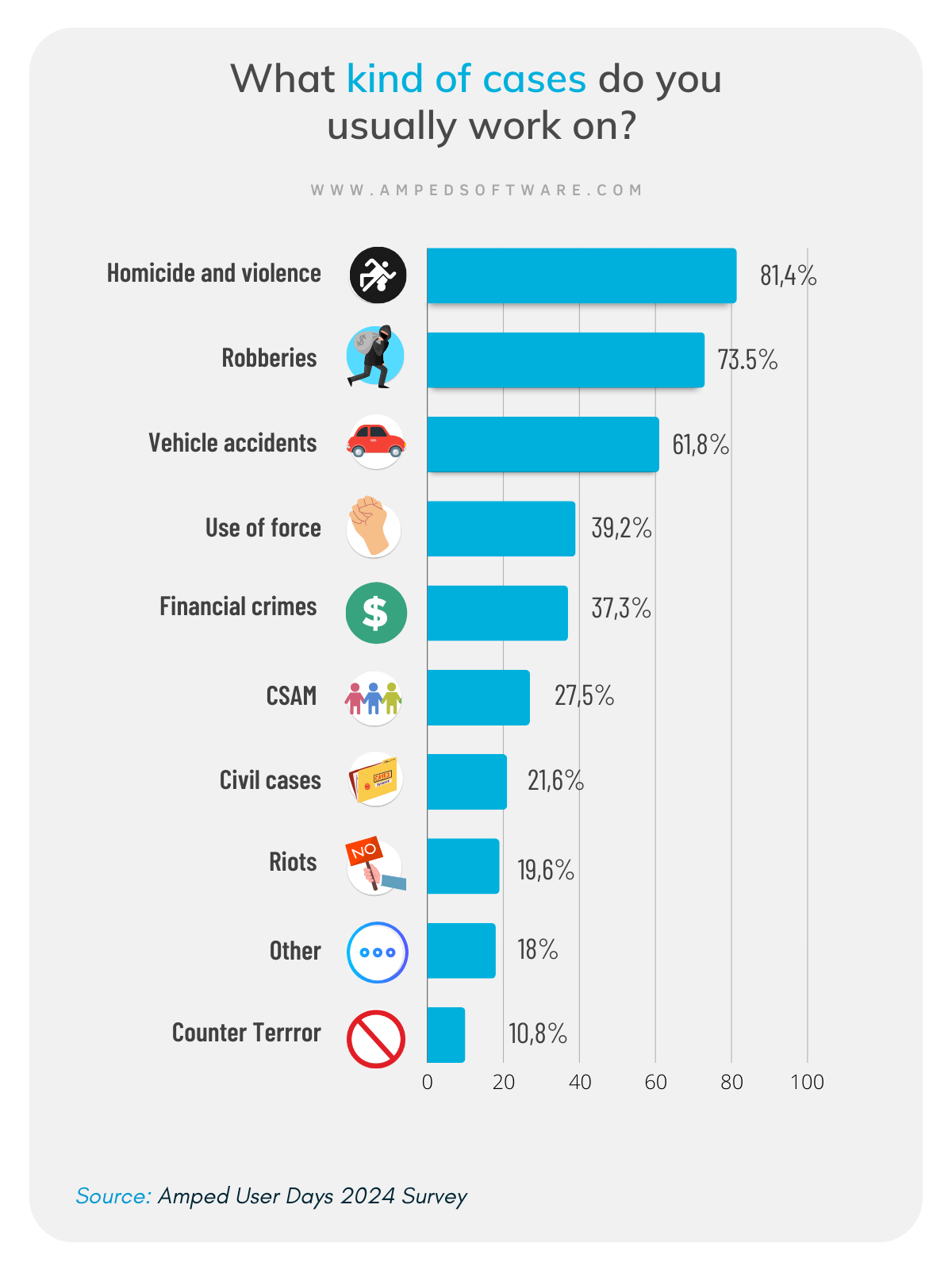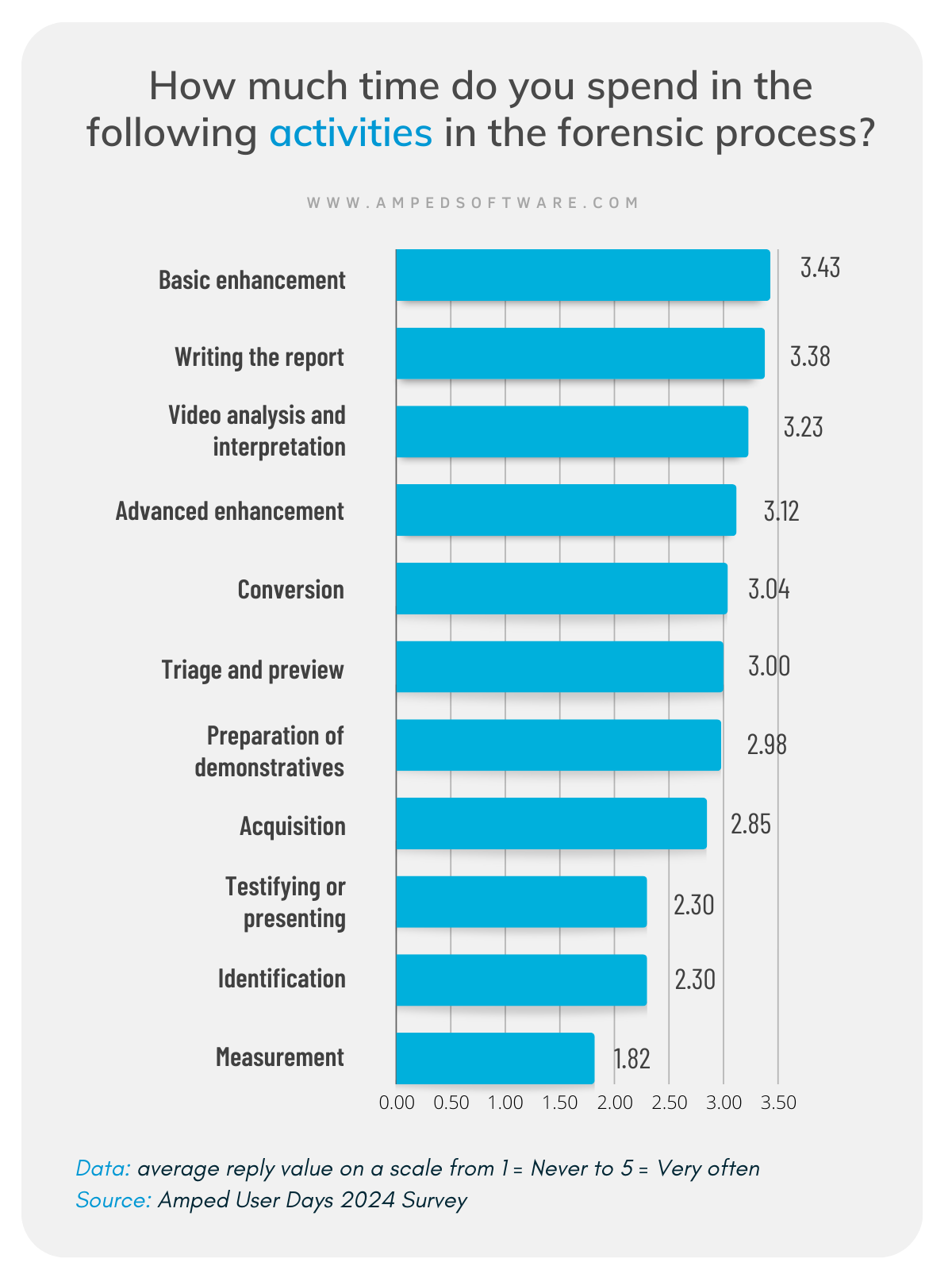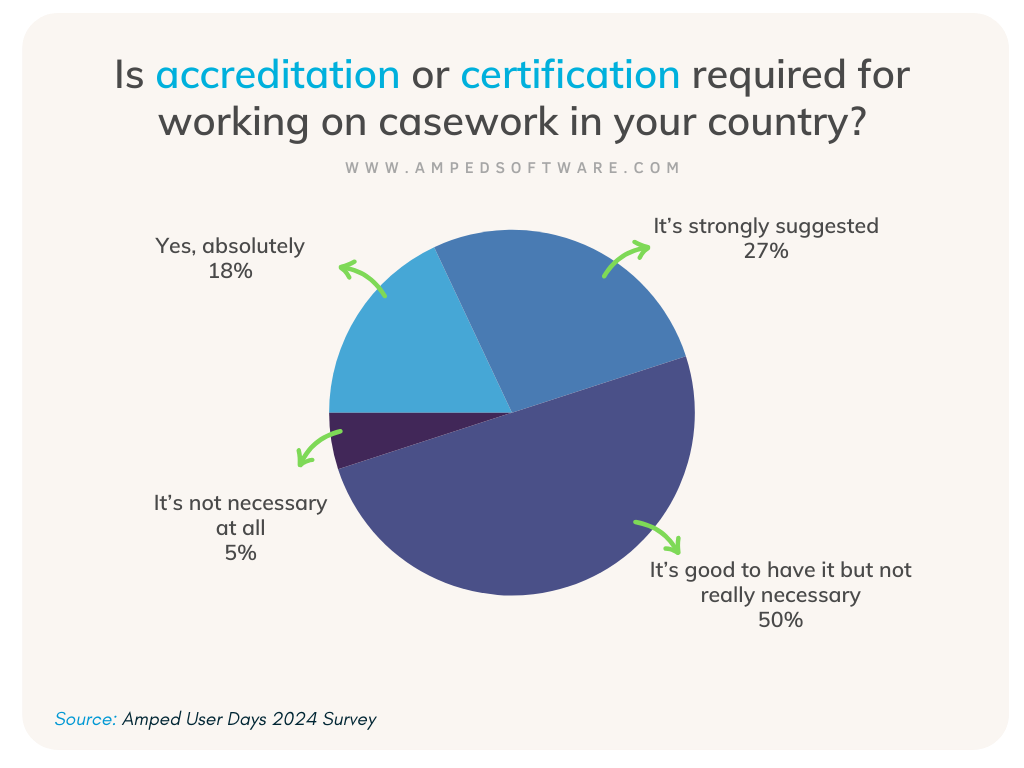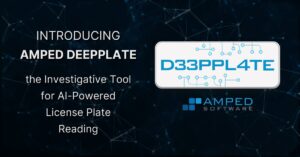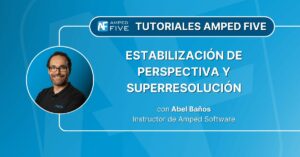Let’s discover our users’ opinions on AI, accreditations and certifications, deepfakes, digital media authentication, and DEMS. Some of the results are pretty unexpected!
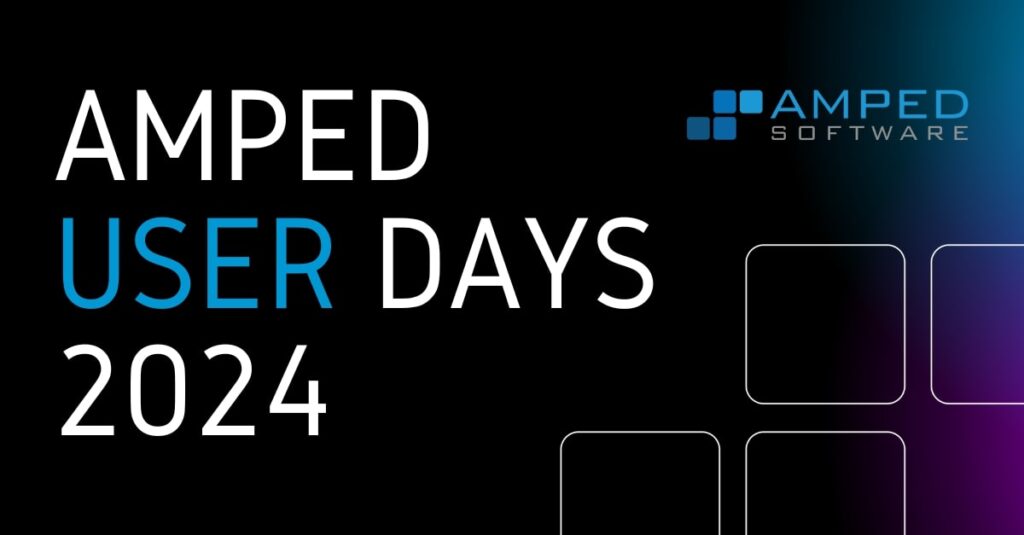
It’s been a while since I last wrote a blog post for our Enhanced Reflections series, but I am finally back!
At the end of February, we had the 5th edition of the Amped User Days, the online conference dedicated to our users. A few weeks before the start of the event, we launched a survey to understand the topics and trends our users were mostly interested in. I am going to share the most interesting insights in this article.
Who are you?
More than 100 users filled out our survey, with about three-quarters coming from the US and Canada. While these countries make up a good percentage of our users in general, they are definitely overrepresented in the survey with respect to the more than 100 countries that we serve.
One of the most important questions is about the type of work that our users do. We tried hard not to repeat questions from previous surveys, such as our users’ title and organization type (if you are interested in this, you can read it here).
Unsurprisingly the majority of our users work on violent crimes and robberies, followed by vehicle accidents. In response to the growing demand for accident reconstruction and forensic collision investigations, in 2022, we launched a few features in Amped FIVE for this kind of cases, such as Speed Estimation 2d filter and various improvements on timestamp and playback accuracy.
Another interesting aspect is the relative amount of time spent on various activities, with basic enhancements, report writing, and video analysis and interpretation taking the top spots, likely because these are activities that our users have to perform in almost every case.
For the same reason, testifying or presenting, identification, and measurement likely take the last spot because they are done only in specific cases or not done at all by some of our users. Especially with regards to identification and measurements, we have seen that the response has been quite bimodal, with users either doing it almost every day or never, depending on their tasks and specialization.
What Do You Think of AI?
The survey contained a range of questions dedicated to the use of AI in video investigations. If you have been following us, you know I’ve been studying the topic for a while. We had questions focused on its use for enhancement, analysis, presentation, and authentication. While the kinds of applications are quite different, responses have been relatively uniform.
I am sharing here the results for AI enhancement since this is the most critical use.
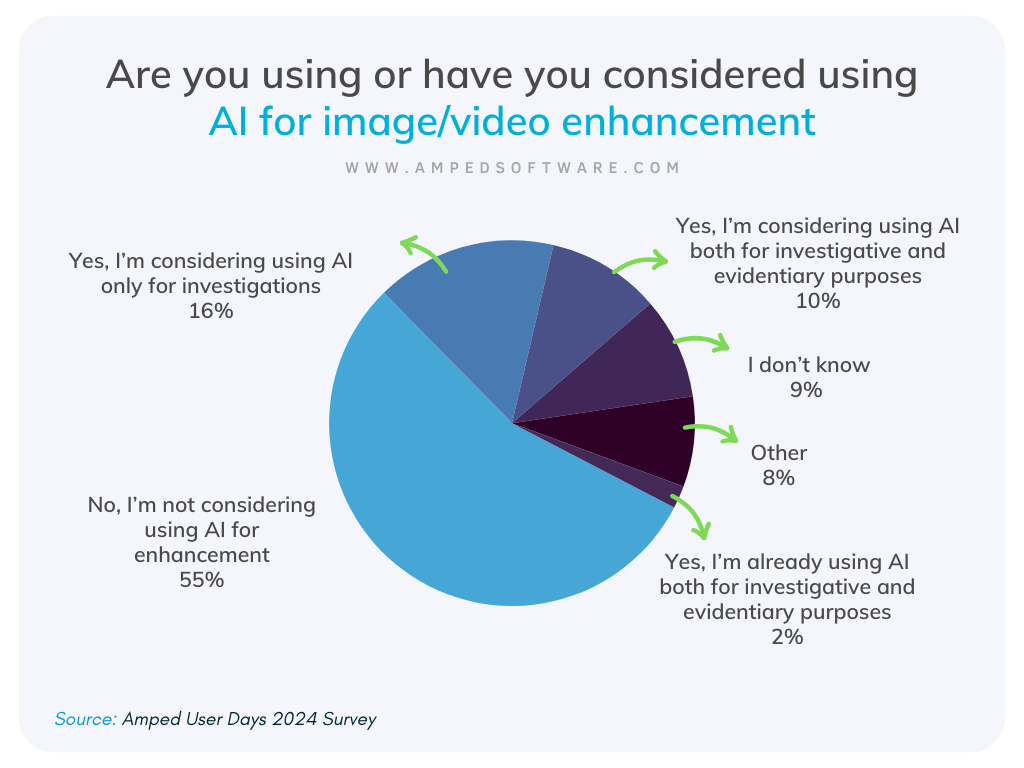
The majority of people (55%) are not considering using AI for enhancement at all. About 16% are considering using it only for investigations, but 10% also for evidence. 2% are already using it for both cases. The rest either don’t have a clear idea or provide some additional answer.
There have been some interesting comments in this discussion:
- some are using AI to get proper FFMPEG commands and syntax
- some are afraid to use AI because they don’t know how to validate it
- some mention that they are unwillingly using AI since it’s embedded in Photoshop and Word
What Do You Think of Accreditations or Certifications?
We asked our users if accreditation or certification is needed for working on casework in their country. They are two very different things (accreditation is usually for a lab or organization, certification is for an individual), but we didn’t want to add too many questions.
About half of our users said that certification is desirable but not really compulsory. A quarter said that it’s strongly suggested, and about 18% said that it’s absolutely needed to work.
So, what certifications or accreditations do our users have?
An impressive number (37%) have a LEVA certification (either as a technician or analyst), while 29% said none or didn’t reply. About 9% have an ISO 17025 accreditation and 6% an IAI certification. 15% mentioned some other certification (either not mentioned by others or not related to video), and our newly launched Amped FIVE Certified Examiner certification (AFCE) is already at 4%!
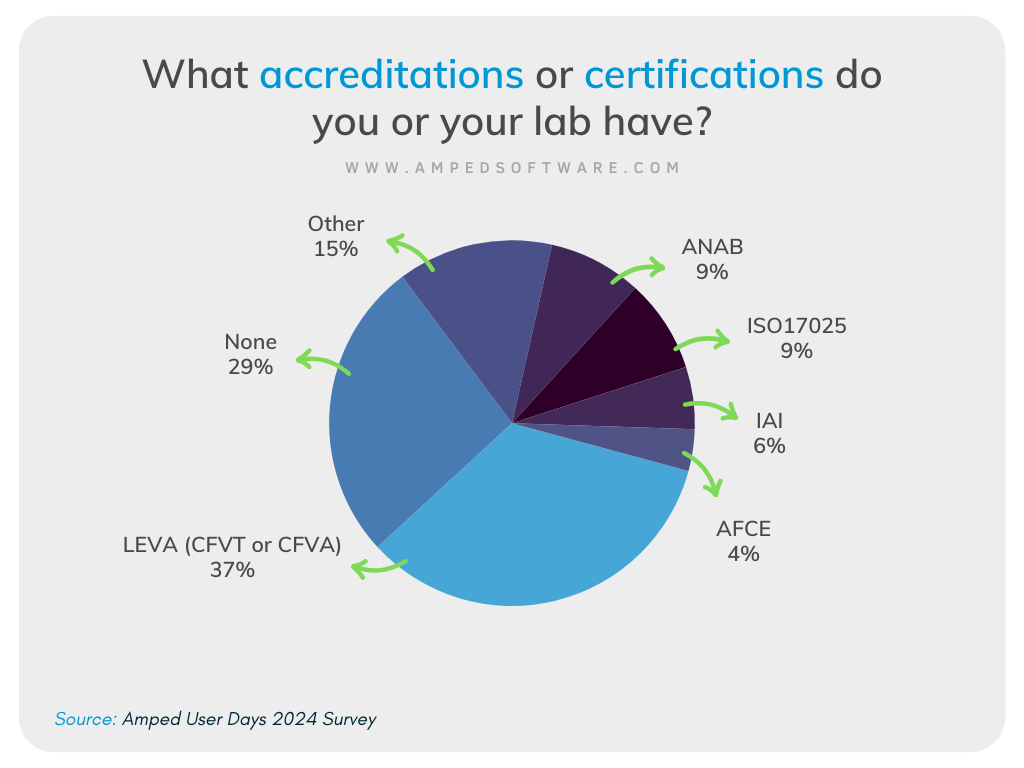
Finally, we asked about the certification or accreditation process. The results have been somewhat evenly distributed between people who are making progress, those who do it but very slowly, those who are not making any progress but are willing to do it, and those who are not interested (the relative majority).
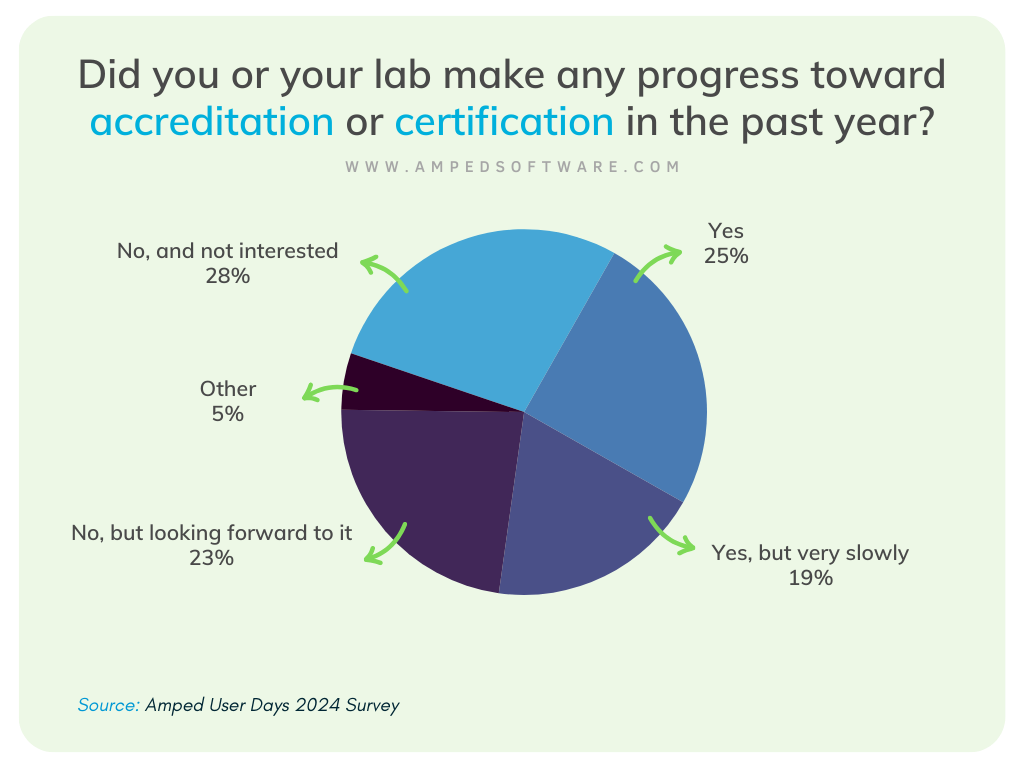
What Do You Think of the Video Evidence Principles?
A question I was pretty curious about was one related to some feedback on the document I presented last year at the European Parliament “Concepts and Principles for the Use of Video Evidence in the Criminal Justice System” (usually shortened as “Video Evidence Principles”).
I was flattered by the fact that most people knew them and thought they could be useful. I personally think they are very important (otherwise, I wouldn’t have spent such a significant part of my time on them), but I really struggle to understand how much they can influence our field, since it is a significant challenge to overcome the status quo that video evidence is not always considered with enough care.
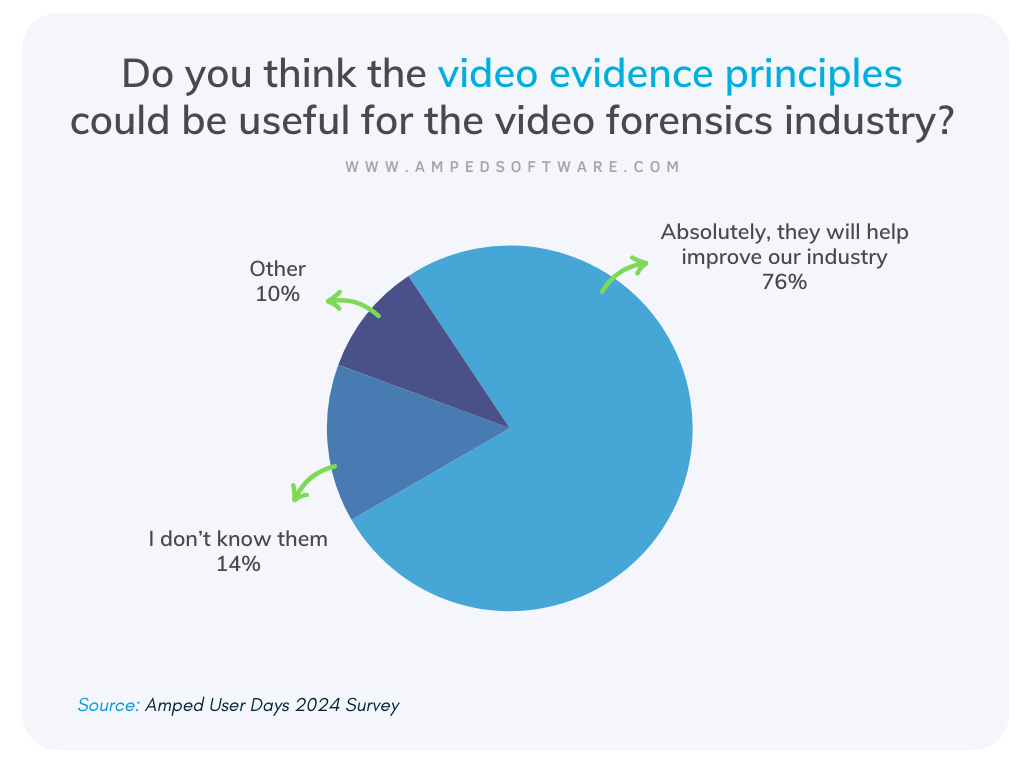
What Do You Think About Deepfakes and Authentication of Digital Media?
We hear about deepfakes multiple times per day, even and especially in generalistic media. But how much of an actual problem are they in our users’ casework now and will they likely be in the future?
For the vast majority (73%) of our users deepfakes are not a big problem yet, but they will be soon. About 16% think they will never be a major problem, while 4% say that they are already a big problem in their work.
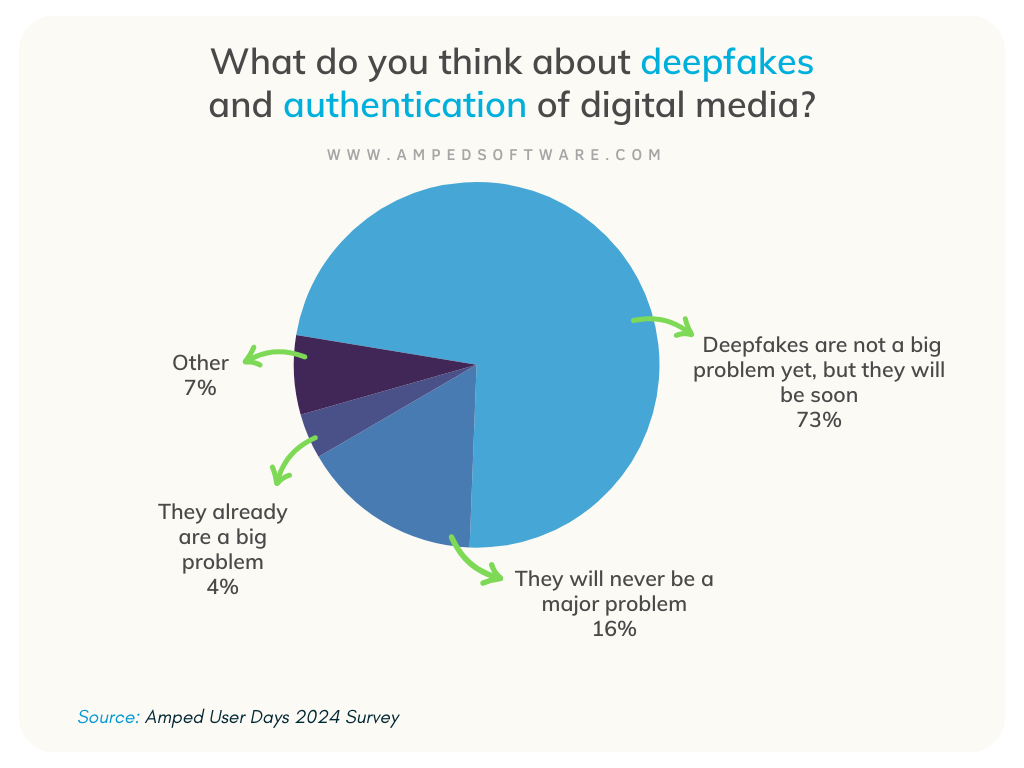
The next question was “How do you authenticate an image or video?”. The answer was intentionally left open since the kind of authentication (and integrity verification) can differ widely across organizations depending on the kind of work and processes that our users have to perform. I tried my best to categorize the textual results according to the reply, even though it was not an easy task.
The results were the following:
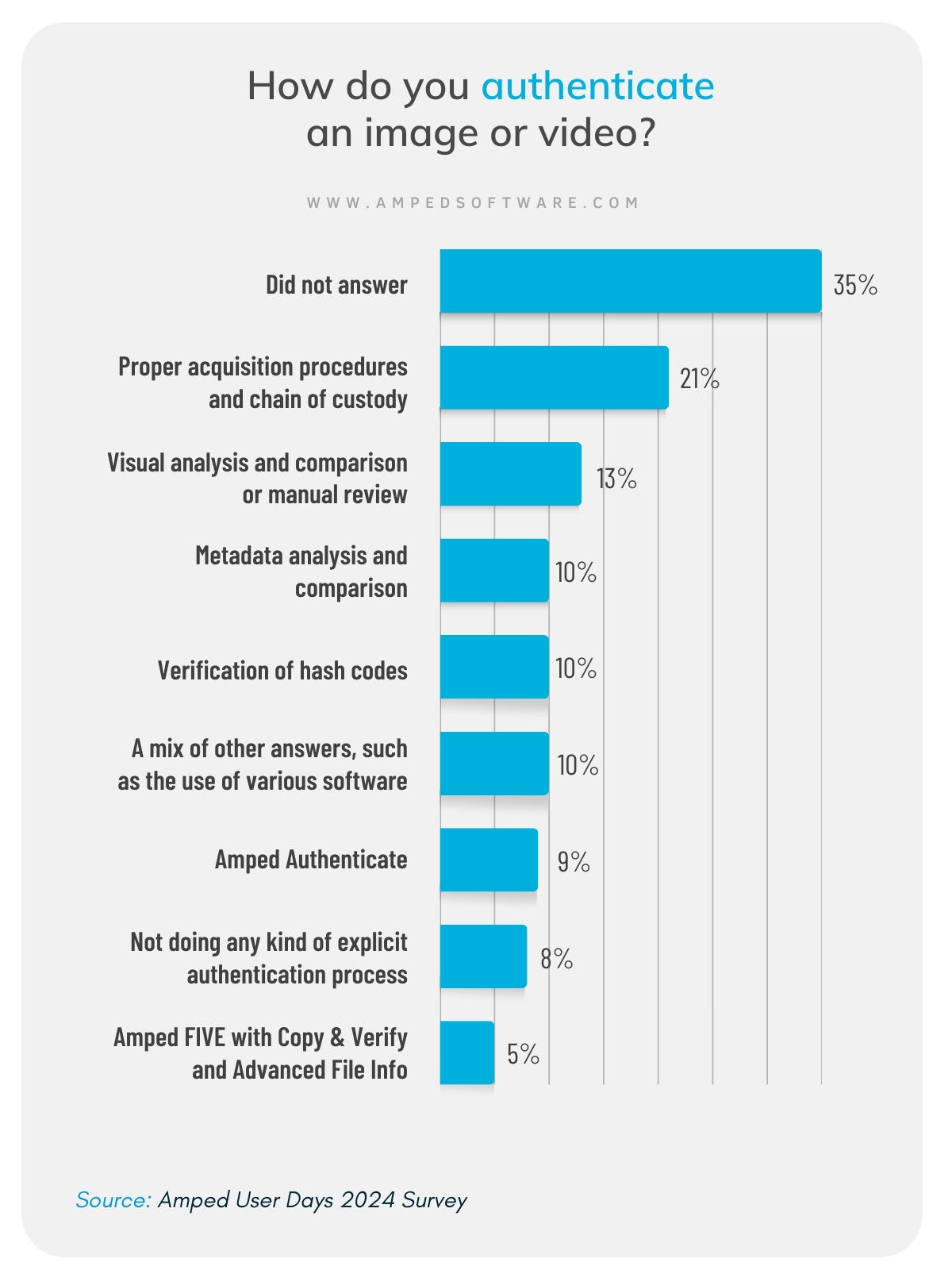
In my opinion, this is a pretty interesting outcome, since there’s not a uniform approach, and basically everybody is doing something different (and even interpreting the question in a different way). There’s definitely a lot to improve in the forensic community regarding a shared approach to authentication, especially in an age where forging media is as easy as ever.
As a start, I recommend reading the ENFSI Best Practices Manual for Digital Image Authentication and the SWGDE Best Practices for Image Authentication.
Where Do You Store Your Evidence?
We often hear our users mentioning some of the many available DEMS (Digital Evidence Management Systems) solutions on the market, so we were curious to see how much they were actually in use.
The majority of respondents (41%) still use a simple network drive (NAS) or an internal server. 26% use removable media such as external hard drives, CDs, DVDs, and tapes (much more than expected in 2024). 12% use a cloud-based DEMS and 7% opt for an on-premises DEMS. There were also numerous mixed responses, indicating a combination of other methods or other specific solutions.
I was surprised by the small percentage of respondents that have adopted cloud DEMS, especially considering that most of them were from North America. Seems that marketing departments are pretty good at making it appear more in use than it actually is. One possible explanation is that most of the respondents are working in forensic video labs and are not first responders, which may have a wider adoption of these systems.
In any case, it seems that there’s definitely a potential for a big growth in the DEMS market, which as of today seems to be very fragmented, with our users mentioning 14 different commercial solutions in use.
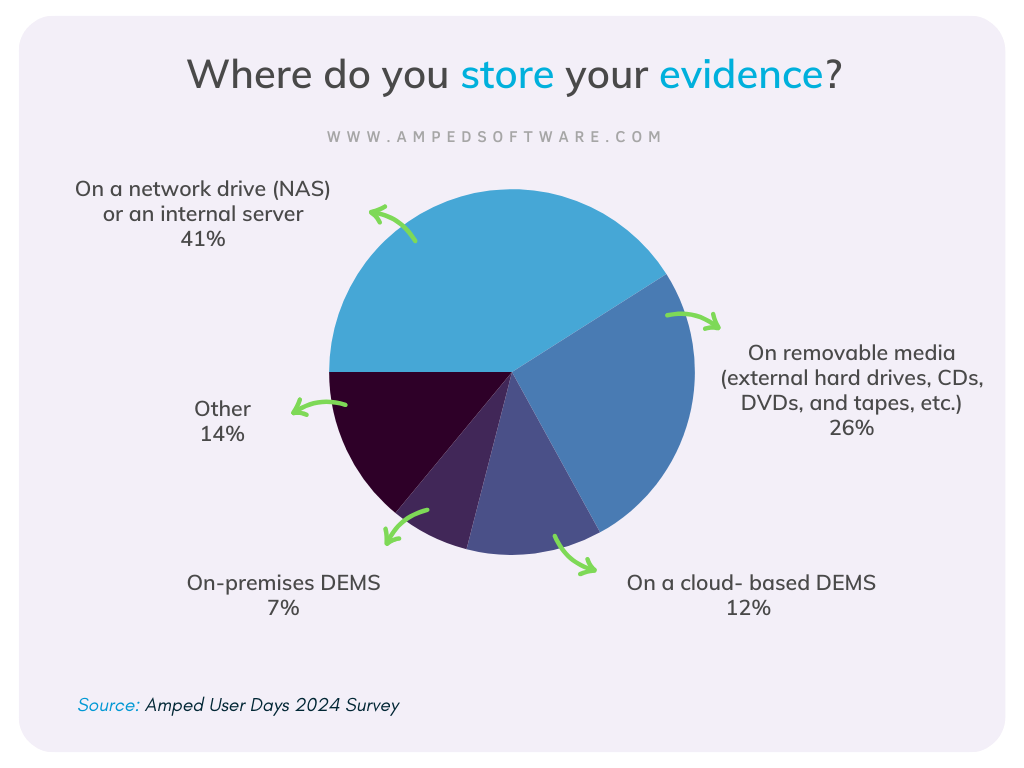
Conclusions
Of course, there was much more in the survey that is for internal use at Amped Software, such as the usual praises, features suggestions, and – why not – some complaints on things to improve.
I think we can summarize the results of the survey with the following takeaways points:
- Most of our users work on violent crimes, followed by vehicle accidents and use of force investigations.
- Enhancement and reporting take most of the time, identification and measurements the least (maybe because not everybody is doing this kind of activity).
- Most people are reluctant to use AI for any forensic application, but a few are already using it.
- Various certifications and accreditations are of interest to about half of our users, LEVA is the biggest, with more than a third of our users having one of their certifications.
- Almost 73% of people think that deepfakes are not a big problem yet, but they will be in the future, about 16% think they will never be a major problem for casework.
- Regarding the authentication of digital multimedia evidence, everybody is doing something different (some don’t do anything at all, some use Amped Authenticate, some simply rely on the chain of custody and hash code verification, and many other options).
- Only about 20% of users have a DEMS (either in the cloud or on-premises), and their market is very fragmented.
Personally, the comment I enjoyed the most was the following since it reflects my and our commitment to the best possible customer support, software completeness, and company independence.
“Amped Software is the last company in our field that is still responsive to the needs of actual forensic video practitioners, and I appreciate that tremendously! I don’t begrudge anybody the opportunity to make a lot of money by selling their company to a corporate behemoth, but it doesn’t do anything to help us as frontline forensic video techs and analysts. As a result of these changes, I’ve shifted a much larger percentage of my workflow to a “Use FIVE first” strategy. I plan to continue to do so for the foreseeable future. Thanks for making a great product that focuses on the needs of users!”

